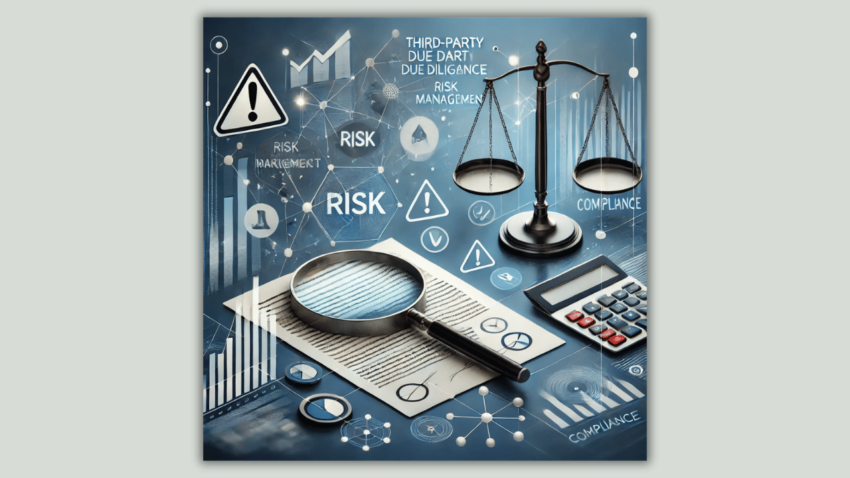Explore the essentials of third-party due diligence in this guide, covering risk management, compliance strategies, and how to protect the business from threats.
Third-party checking is very important for companies today. Since businesses indeed rely on linkage, it’s essential for companies to look into third-party agencies. Companies usually require external help from vendors, suppliers, and contractors for better performance. It is a risk for companies, either legal, financial, or reputation issues, with their external partners. Thorough checkouts of third parties help businesses realize these risks and make sure that their associates outside are complying with the law and are ethical.
According to Zipdo, the median loss of about $220,000 is lost by the banking sector, which seems most vulnerable to fraud. Using thorough research solutions, companies cut down on their risks and establish credible relationships with external business partners. It helps protect their operations and creates a good reputation. Using such a proactive approach to dangers by following the rules, a firm can stay ahead of the market.
This article will discuss the basic principles of third-party due diligence, focusing on risk management and compliance strategies, discuss the role of dedicated due diligence companies, outline key components of an effective due diligence practice, and offer a comprehensive checklist for business organizations.
What is Third Party Due Diligence?
Third party due diligence policy generally refers to checking and weighing the risks of having outside business partners, such as vendors, suppliers, or contractors. The process helps businesses find potential legal, financial, or reputation risks associated with third-party partnerships. In fact, the procedure comprises conducting background checks, performing financial assessments, and compliance checks, as well as making sure that third parties operate according to the rules, ethical standards, and industry guidelines. Proper due diligence on a company can reduce the risk of fraud, corruption, or non-compliance. This protects operations and reputation in the marketplace.
Third Party Due Diligence Companies How they Work?
Third-party due diligence companies are essential for helping businesses manage the risks of external partnerships. Here’s how they work:
- Risk Assessment: Some risks can be assessed with business partners, who could be the vendors or suppliers.
- Factual background: Look at financial records, legal history, and regulatory compliance.
- Ethics & Compliance: Identify fraud, corruption.
- Advanced tools: Automated risk profiling and data analytics using advanced profiling to find potential issues.
- Compliance support: Businesses must ensure compliance with global regulations to avoid legal complications.
- Transparency: Ensure third-party partners have high ethical and operational standards.
Third Party Due Diligence Policy
Due diligence policy, third-party refers to the practice a firm uses when working with outside partners such as vendors or suppliers to check possible problems. This kind of policy clearly outlines steps on how to go about researching the status of a partner’s finance record and legality, as well as their adherence to industry rules. Background checks and monitoring are usually entailed in enhanced due diligence and risk assessment. An objective is to put a stop to such problems as fraud, corruption, or violation of laws about bribery. A strong due diligence policy will help protect operations and maintain the good name of the companies while ensuring their partners act ethically and legally.
Third Party Due Diligence Checklist The Essentials
A third-party due diligence checklist helps businesses to effectively scan for potential risks in their dealings with external partners. This checklist is key for managing risks and staying compliant. A few key essentials include:
- Check Background: confirm legal status, ownership, and any other known litigation.
- Financial Health Analysis: Check financial books to determine stability and creditworthiness.
- Compliance Checks: Laws such as anti-corruption, AML , and industry-specific regulations should be followed.
- Reputation Evaluation: Analyze the third party’s market reputation and record of ethical activity.
- Risk Monitoring: Put in place a process to continuously monitor risks.
- Contractual Obligations: Confirmation that the agreements detail the expected compliance requirements.
Third Party Due Diligence Solutions for Deterring Fraud
Due diligence using third-party solutions helps prevent fraud in business partnerships. This basically involves conducting serious background checks, examining financial documents, and ensuring that the third party adheres to anti-fraud regulations. Moreover, third-party due diligence solutions can help businesses identify red flags, such as unusual transactions or ties to dubious groups, through automated tools and data analysis. Keeping a close watch on third parties helps detect in advance any changes in their behavior or compliance. These solutions prevent fraud and protect the company’s reputation and operations due to proper observance by all external partners of the law, thus reducing the risk of financial as well as reputational damage.
Wrapping it Up
Third-party due diligence is necessary for all businesses to keep away risks and stay within the norms. Companies should make sure that external partners are not likely to indulge in fraud, corruption, or rule-breaking by checking all their backgrounds, financial health, and compliance practices well. A clear policy incorporating checklist management of due diligence firms helps companies safeguard their operations and reputation. Moreover, advanced solutions for recurrent monitoring can identify potential risks early. With these strategies, companies can build trustworthy partnerships, reduce risks, and, above all, ensure competitiveness in a complex business environment like today’s.







